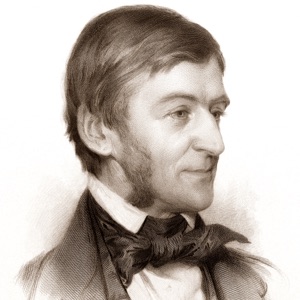
Ralph Waldo Emerson (1803 – 1882) was an American essayist, lecturer, philosopher, and poet who led the transcendentalist movement of the mid-19th century. Emerson served as a junior pastor in Boston’s Second Church, but after his first wife’s death, he began to disagree with the church’s methods, eventually leading to his resignation. Upon his return home from a tour of Europe in 1833 he began writing his first published essay, Nature. In March 1837 Emerson gave a series of lectures on the philosophy of history in Boston, which began his career as a lecturer. He eventually gave as many as 80 lectures a year, traveling across the United States. He disseminated his thoughts through dozens of published essays and more than 1,500 public lectures.

Quotes by Ralph Waldo Emerson…
My life is for itself and not for a spectacle. I much prefer that it should be of a lower strain, so it be genuine and equal, than that it should be glittering and unsteady.
A little consideration of what takes place around us every day would show us that a higher law than that of our will regulates events; that our painful labors are unnecessary and fruitless; that only in our easy, simple, spontaneous action are we strong. Place yourself in the middle of the stream of power and wisdom which animates all whom it floats, and you are without effort impelled to truth, to right, and a perfect contentment.
Time and space are but physiological colors which the eye makes, but the soul is light; where it is, is day; where it was, is night.
Nature suffers nothing to remain in her kingdoms which cannot help itself. The genesis and maturation of a planet, its poise and orbit, the bended tree recovering itself from the strong wind, the vital resources of every animal and vegetable, are demonstrations of the self-sufficing, and therefore self-relying soul.
Prayer that craves a particular commodity — anything less than all good — is vicious. Prayer is the contemplation of the facts of life from the highest point of view. It is the soliloquy of a beholding and jubilant soul. It is the spirit of God pronouncing his works good. But prayer as a means to effect a private end is meanness and theft. It supposes dualism and not unity in nature and consciousness. As soon as the man is at one with God, he will not beg. He will then see prayer in all action.
What is the hardest task in the world? To think.
Dear to us are those who love us, but dearer are those who reject us as unworthy, for they add another life, they build a heaven before us whereof we had not dreamed, and thereby supply to us new powers out of the recesses of the spirit, and urge us to new and unattempted performances.
The power men possess to annoy me, I give them by a weak curiosity. No man can come near me but through my act.
This one fact the world hates, that the soul becomes; for that forever degrades the past, turns all riches to poverty, all reputation to a shame, confounds the saint with the rogue, shoves Jesus and Judas equally aside.
So, in regard to disagreeable and formidable things, prudence does not consist in evasion or flight, but in courage. He who wishes to walk in the most peaceful parts of life with any serenity must screw himself up to resolution. Let him front the object of his worst apprehension, and his stoutness will commonly make his fear groundless.
